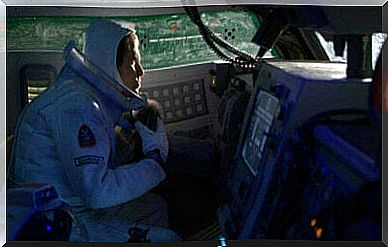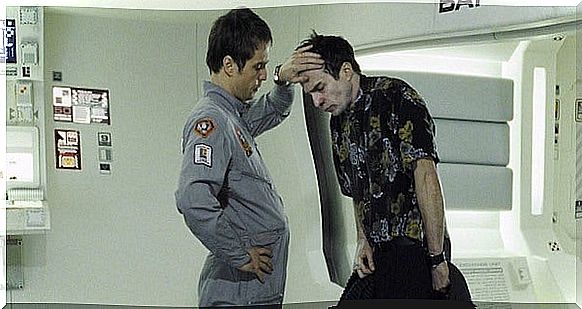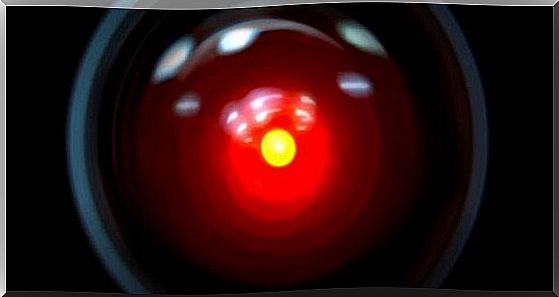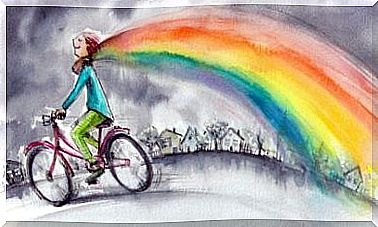Moon

Until 2009, Duncan Jones was arguably a complete stranger to many. For others, he was simply the son of the unforgettable David Bowie. Nevertheless, he made himself known that year thanks to an incredible work: Moon.
Far from following in his father’s footsteps, Jones decides to devote himself to another artistic branch: cinematographic direction. Graduated in philosophy and with a doctorate in his pocket, he decided to train well in the field of cinema. This is how he arrived at his first feature film in 2009.
Many people will surely think that – because of his origins, he would have a rich address book and that he could afford to take the big step towards the cinema. Certainly, he could have taken his father’s artist name and tried to obtain significant funding. He nevertheless chose to be just Duncan Jones and rely on a relatively limited budget.
Despite this, Moon exceeded expectations and the benefits were surprising. The film conquered the Sitges Film Festival and won several awards such as Best Independent Film of 2009.
Moon : science fiction
You would think that only the big Hollywood producers are capable of making science fiction, that the only way for the genre are the spectacular special effects and the impressive budgets that big productions have accustomed us to.
Moon moves away from all of this to present us with an intimate work of science fiction, which delves into metaphysical and human questions. With barely an actor and limited resources, we have a film that is slower, simple and introspective but elegant and with some interesting questioning.
The scenario is simple and not too absurd. He imagines a future that could be closer than we think. On a planet whose resources are exhausted, new sources must be found which, in this case, will be on the Moon.
The satellite has been converted into a mining operation and the company Lunar Industries will send one of its astronauts, Sam Bell, there for a 3-year mission.
Bell is responsible for controlling the excavators that extract the material needed to generate energy on Earth. Added to his loneliness is the inability to communicate with Earth in real time due to a failure of the communications satellite.
The company also has more important priorities than restoring the communication problem. Bell manages to communicate with his family but only through recorded messages. Its only company is that of an intelligent robot GERTY which reminds more than one HAL-9000 of 2001: the Space Odyssey.
Moreover, the film of Kubrick is very present in the film of Jones. Indeed, there are several allusions or even scenes almost modeled on the feature film that rediscovered science fiction. But it’s not just Kubrick’s movie that’s featured in Moon ; it is also titles like Alien (Scott, 1979) or Solaris (Tarkovski, 1972) which left their mark on Moon.
In addition, the film anticipates, in a way, more recent films, such as Interstellar ( Nolan, 2014), Ad Astra (Gray, 2019) or even High Life (Denis, 2018). In a way, all of this leads us to reflect on how science fiction has evolved over time, and in a more concrete way, one that relates to space.
The evolution of a genre in Moon
Since the dawn of time, human beings have gazed at the sky with wonder. He observed the stars and the stars for different purposes. One of the great pioneers of the science fiction genre is Woman on the Moon (Fritz Lang, 1929).
The film is divided into two well-differentiated parts: the idea of the trip to the Moon first and second, the trip itself. At that time, man still dreamed of the stars, of the conquest of space, a scenario that was seen as a sign of progress and evolution.
Years pass and we arrive in 1968. At this point, Kubrick will change – almost simultaneously with the very history of mankind – the course of space science fiction. 2001: A Space Odyssey refines Lang’s simplistic models and uses exceptional special effects.
With Woman on the Moon , we saw our dreams come true. With Kubrick, we are witnessing what could become of the space race that was taking place at this precise moment.
Therefore, one can ask oneself: what is happening nowadays? Will we continue to dream of the blessings of space when the space race has turned out to be an absolute failure?
In that sense, Moon shows us a much more bitter perspective. Our world has been so massacred by humans, in the not so distant future, that we will be forced to return to space. But, in this case, it will be with the hope of improving our life on Earth.
In a time of climate change, the world is becoming inhospitable and space is our last resort. In addition, the idea of loneliness that was induced in the previous films becomes more explicit here.
Henceforth, the object of study is none other than Man. Man, victim of his time, of lies and of big business. Science fiction is used as an excuse to set up a reflection on the present moment. There is no more reverie, there is no longer hope or illusion, but despair.

The Science Fiction Background
In Moon, science fiction is a context that allows reflections around the being, introspective reflections but also towards the dehumanization of the world carried out by large companies in which individual interests do not matter.
The aesthetics are perfectly neat, despite a reduced budget. The interpretation is brilliantly performed by an exceptional Sam Rockwell, who will have to deal with an older version of himself.
This point is interesting. Indeed, Jones puts before our eyes two men who say they are the same people but who are in different moments of their lives. This is how conflict appears. Is it the essence of the unalterable, unperturbed self? Does the being change with time or with circumstances?
A conflict between an older “me” and a younger “me”
Moon places us in this position, an older “me” faces a younger “me” with whom he will differ on a large number of points. No doubt, if any of us were to be faced with a past “me”, they would find themselves in a complex scenario filled with discussion.
Are they two different people? Is the same person facing different circumstances? These are some of the questions the viewer will ask himself.
Jones did not want to hide the appearance in his film of the “me” dichotomy. Nonetheless, it is perhaps more interesting to come face to face with the film in the utmost ignorance.
Moon is predictable from the first few minutes. This is not why he will stop surprising us, hooking us and entertaining us. With a less sustained rhythm which contrasts with the great productions of contemporary science fiction, Moon draws a scenario which does not seem strange to us, which presents reminiscences with reality and which is based on a well-kept camera.
Without too much action, it asks important questions around the being by showing that science fiction still has this critical component that we associate so much with dystopia. By unmasking abusive entrepreneurial practices, he questions ideas such as freedom, dehumanization and progress.
All of this in a film that draws inspiration from the influences and describes them in an elegant but authentic way. A film that draws its origins from the less sustained science fiction of the past to question current issues.
Without a doubt, a vision that moves away from the positivism of previous decades vis-à-vis the space race, a more tragic vision in which space is none other than the last source of resources.










